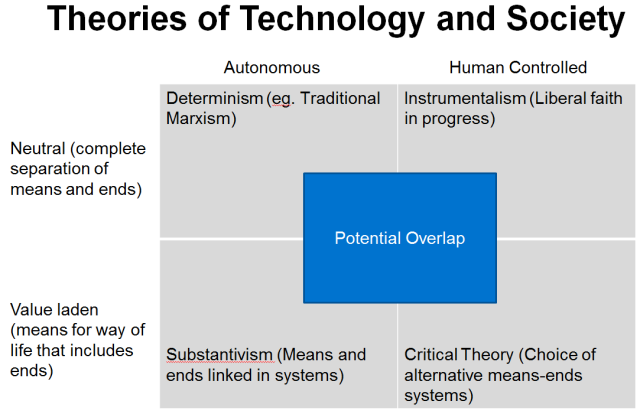On December 5th 2012 I made a presentation as part of the AMREF Canada Coffeehouse Speakers Series on Global Development in Toronto. This post expands on that presentation.
The United Nations agreed on their Millenium Goals in the year 2000, to be achieved by 2015. These are summarised in the following video:”
What role does technology have in development?
Concerns continue to be raised about a “digital divide” between rich and poor countries and evidence supports this concern. In 2012, 15.6 % of Africans have internet access while 37.7 % of people in the rest of the world do.
There is debate on whether internet access (mobile or not) is a significant issue in development. The United Nations appears to beleive that it is. In 2000 Kofi Annan, then UN Secretary General, argued that there was a direct link between access to information technology and economic development. The UN has engaged in some efforts to close the digital divide. Others have argued information technology will only make matters worse as the following quote from Norris (2001) illustrates:
“The role of technology has therefore fueled a debate among optimists envisaging the positive role of the Internet for transforming poverty in developing societies, skeptics who believe that new technologies alone will make little difference
one way or another, and pessimists who emphasize that digital technologies will further exacerbate the existing North–South divide.”
The debate on information technology and development reflects the broader debate on theories of technology and society generally. The following graphic from Quan-Haase, due to be published in 2013, depicts the main positions:
There are four main schools of thought on technology and society that are classified in two main dimensions: autonomous or human controlled and neutral or value laden. Those who beleive that technology is neutral argue that technology itself is separate from human activity and does not affect human nature and how people behave. Those who argue that it is value laden usually see technological development as human progress – all new development is good.
Those who believe that technology is autonomous argue that technology develops on its own path, altering culture and social structure and that, once the technologies are introduced, humans have little control of their impact. Those who oppose the autonomous viewpoint argue that technology can be controlled by humans. Cultural norms and values determine which technologies are developed and how they are used.
These various views reflect division about the role that information technology can play in development. In developing countries the dominant view appears now to be that information technology can play a positive role as this video about information technology in Nepal shows:
Barriers to internet access in developing countries are still significant. The price of internet access is high relative to local incomes, the lack of connectivity infrastructure and access to electricity along with the main internet langauge being english are substantial barriers.
Case Study: One Laptop Per Child
One example of an initiative that is designed to improve access to technology is the One Laptop Per Child project, championed by Nicolas Negroponte. This initiative seeks to provide a laptop to children in developing countries. They argue that the laptop will “help children to think”. It is powered by a handcrank, removing electricity issues and connectivity is achieved through wireless mesh networking which reduces the need for connectivity. One laptop can have a connection and share that with others in the wireless net. The laptop uses free and open source software and is ruggedly built.
Critics of the One Laptop Per Child project argue that it is a dangerous diversion of resources from other development initiatives. While OLPC argues that all children need their own laptop, critics ask why they cannot be shared, that there needs to be a better balance of resource allocation. They also argue that existing low levels of student and teacher IT skill limits the impact that the laptops will have and they note the traditional role played by teachers in developing countries and the non alignment of the OLPC model with this. In recent years OLPC have focused on the development of a tablet.
The case of OLPC illustrates the debate in the development community over the role of information technology that has existed for many years. Today optimists about the use of information technology in development argue that either western and developing countries will become similar in coming years as technology influences development or that normalisation will occur whereby developed countries will take the lead and developing countries will slowly follow. The rapid growth of cell phone use in Africa is cited as evidence that the spread of access to technology will be rapid. Some say that a Global Village Model will develop that will enable global access to education, health and economic services of a standard that was previously only available in the west. They also point to the economic impact of the mobile phone business in developing countries and the possible greater mobile access to education.
Mobile Technology
Mobile technology does seem to be proliferating rapidly today. In 2012, 65 % of the population of Africa have cell phones and this growing at a 20 % annual rate. Widespread access to cellphones in communities is spreading the social impact that they are having. Optimists argue that this will help to overcome social exclusion, improving access to education, healthcare and government services. They also argue that it will help overcome political exclusion through increasing the transparency and accountability of governments and that economic exclusion will be tackled through greater access to markets and money.
Some pessimists in the debate on the impact of information technology in Africa (known as diffusionists) argue that the rich countries will maintain their advantage. They believe that information technology will strengthen multi national corporations. Technology will enable them to reduce their dependence on local resources, being able to have professionals in developed countries play a more active role remotely. They will be able to exist with a weaker local infrastructure and this will cause the division of wealth between developed and developing nations to increase.
The International Monetary Fund has examined the use of information technology in developing countries. They note that in developed countries the percentage of IT spending usually increases as GDP rises and countries get richer. In developing countries this does not appear to occur consistently. They argue that this is due to different political and economic environments. They illustrate their argument by referring to the cellphone and landline markets. Landlines were very slow to spread in developing countries due (the IMF say) to government control of the telephone market. Because the cellphone market has been more competitive, they argue that cellphone access and usage has spread more quickly. Overall, the IMF argue that removal of market restrictions is needed to increase IT proliferation.
NetHope and the University of Waterloo
In the 1950s many argued that technology would have a significant role to play in development. By the 1960s, after many failed projects, it was realised that technology would need to be carefully used and there was the growth of the appropriate technology movement, which focused on the fit between local circumstances and the technology applied. Today there is a widespread belief (although not unanimous) that information technology has a significant role to play in development. This belief led to the creation of NetHope:
In supporting the work of its members in the application of information technology in development NetHope seeks to overcome many challenges that are specific to the developing world. Local cultures and traditions impact how technology will be applied, varying levels of literacy and numerous local languages, misinformation about and mistrust of technology are issues that need to be tackled. Finding solutions that will work with local infrastructure, dealing with bandwidth and environmental issues (such as dust) are common challenges.
At the same time solutions that are developed need to be sustainable. Projects need to produce enough income to cover all of their operating costs, need to be able to be maintained locally, be easy to train people for and ideally need to be able to be widely applied.
For the past six years, graduate students at the University of Waterloo have been working on projects with NetHope as part of a course in International Project Management and Development. In the 13 week course, which is offered in a classroom version and online, students work on live NetHope projects, connecting with NetHope sponsors globally in weekly Skype conference calls. The project results have been practically applied by NetHope. Projects have been undertaken in the following areas:
•Project management practices review
•Global connectivity database
•Last mile connectivity analysis
•Evaluation of mobile technologies in agriculture and health
•Information technology solutions for counterfeit drugs
•Power solutions for Tanzania education
•Red Cross internet cafes and social franchising
•Corporate social responsibility and connectivity
Use of cloud computing by aid organisations
Work is now underway to establish a joint research group between faculty and researchers at Waterloo and NGO practitioners on information technology and development, based on this foundation of research work.



